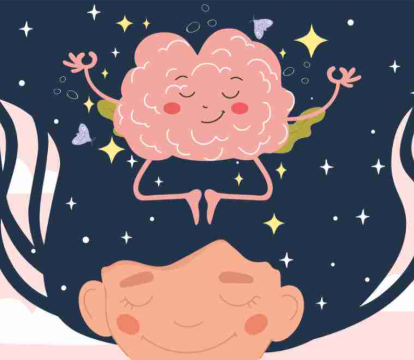In today’s fast-paced world, restful sleep has become a rare luxury. Many people find themselves tossing and turning at night, their minds flooded with thoughts, worries, and endless distractions. The result is a cycle of fatigue that affects not just energy levels but overall health, mood, and productivity. Reclaiming your nights for deep rest is more than a goal; it is a necessity for physical, emotional, and mental well-being. The good news is that with consistent practice and gentle adjustments, anyone can create a nightly environment that promotes restorative sleep.
The first step in reclaiming your nights is understanding the connection between your daily habits and your sleep patterns. The human body thrives on rhythm. Your circadian rhythm, often referred to as your internal clock, regulates the sleep-wake cycle. Light exposure, meal timing, and physical activity all influence this rhythm. By aligning your lifestyle with these natural cues, you can prepare your body for sleep more effectively. For instance, exposure to natural sunlight in the morning helps set your circadian rhythm, signaling to your body that it is time to be awake and alert. Conversely, dimming lights in the evening and avoiding screens can signal that it is time to wind down.
Equally important is the physical environment in which you sleep. A bedroom that encourages rest is a powerful ally in reclaiming your nights. Temperature, lighting, and noise all play critical roles in how easily you fall asleep and how deeply you rest. The ideal sleep environment is typically cool, quiet, and dark. Heavy curtains, blackout blinds, or an eye mask can help eliminate light disturbances, while earplugs or white noise machines can block out unwanted sounds. Comfortable bedding and a supportive mattress provide the foundation for relaxation, reducing the likelihood of waking up with aches or stiffness.
A consistent bedtime routine is another key factor in promoting deep rest. Just as a child benefits from a predictable nightly routine, adults also respond positively to ritualized wind-down activities. Engaging in calming practices such as reading a book, taking a warm bath, practicing gentle stretches, or meditating can ease the transition from a busy day to a restful night. It is also helpful to avoid stimulating activities close to bedtime. Checking emails, watching suspenseful shows, or engaging in intense discussions can keep the mind in an alert state, making it harder to drift into deep sleep.
Nutrition and hydration also influence the quality of sleep. Consuming large meals, caffeine, or alcohol too close to bedtime can disrupt your body’s natural ability to rest. Caffeine, for instance, can remain in your system for hours, delaying the onset of sleep and reducing sleep quality. Alcohol might initially make you feel drowsy, but it can interfere with the deeper stages of sleep that are critical for restoration. Choosing lighter, balanced meals in the evening and maintaining hydration throughout the day helps your body prepare for uninterrupted rest.
Physical activity is a natural promoter of better sleep, but timing matters. Regular exercise during the day encourages the body to fall asleep more quickly and enjoy deeper sleep cycles. However, high-intensity workouts immediately before bed may increase alertness and body temperature, making it harder to relax. Gentle movement, such as a calm walk or stretching session in the evening, can be an effective bridge between daytime activity and nighttime rest.
Managing stress is a crucial piece of the puzzle when it comes to reclaiming nights for deep rest. Chronic stress triggers the release of hormones like cortisol, which can interfere with your body’s natural ability to sleep. Finding ways to manage stress during the day and evening is essential. Journaling, breathing exercises, mindfulness meditation, and progressive muscle relaxation are all practical techniques for quieting the mind. Even a few minutes of focused breathing before bed can signal to your nervous system that it is time to slow down and prepare for rest.
Another often overlooked factor is the timing and pattern of your sleep. Consistency matters more than duration alone. Going to bed and waking up at the same time every day, even on weekends, reinforces your circadian rhythm. Irregular sleep schedules confuse your body and can lead to grogginess, difficulty falling asleep, and fragmented rest. If you have experienced nights of poor sleep, it is tempting to sleep in late or nap excessively, but these actions can disrupt your body’s internal clock further. Gentle adherence to a regular schedule is one of the most effective ways to reclaim consistent deep rest.
Technology, while convenient, is often a sleep disruptor. The blue light emitted by phones, tablets, and computers suppresses melatonin, the hormone responsible for signaling sleep. Limiting screen time in the hour before bed and using features that reduce blue light exposure can support a smoother transition into sleep. If necessary, replace digital entertainment with calming activities such as listening to soothing music or an audiobook, or practicing a guided relaxation exercise.
Sleep is also reinforced by mental preparation. Quieting the mind and setting aside the day’s concerns can make the difference between restless nights and deep sleep. A simple practice is to dedicate a few moments to reflection before bed, acknowledging any worries and letting them go, or noting them down to address the next day. This creates a mental separation between daytime stress and nighttime rest, giving your brain permission to relax fully.
Finally, reclaiming your nights is about commitment to self-care. Sleep should not be viewed as a passive activity or a reward to be earned after a long day. It is a vital process that fuels every aspect of life. Prioritizing sleep and treating it as essential nurtures both body and mind. The benefits extend beyond mere alertness; restorative sleep supports memory, emotional balance, immune function, and overall vitality. By embracing consistent habits, cultivating a serene environment, and respecting the body’s natural rhythms, anyone can transform restless nights into deep, replenishing rest.
In conclusion, reclaiming your nights for deep rest requires a combination of intentional lifestyle adjustments, environmental changes, and mindful practices. Understanding your body’s rhythm, creating a peaceful sleep space, establishing a calming routine, managing nutrition and stress, and limiting disruptive technology are all steps that collectively empower you to sleep more deeply and wake up rejuvenated. Consistency and patience are key, but the rewards of restorative sleep are profound and life-enhancing. When you make the commitment to prioritize sleep, you give yourself the opportunity to restore, refresh, and fully embrace each day with renewed energy. Deep rest is not just a dream; it is a choice, and every night presents a new opportunity to claim it.






